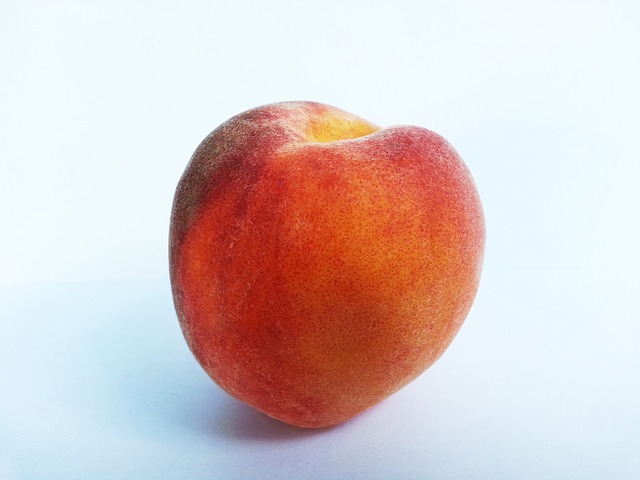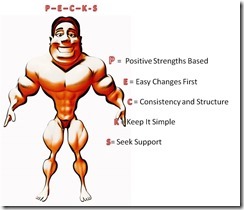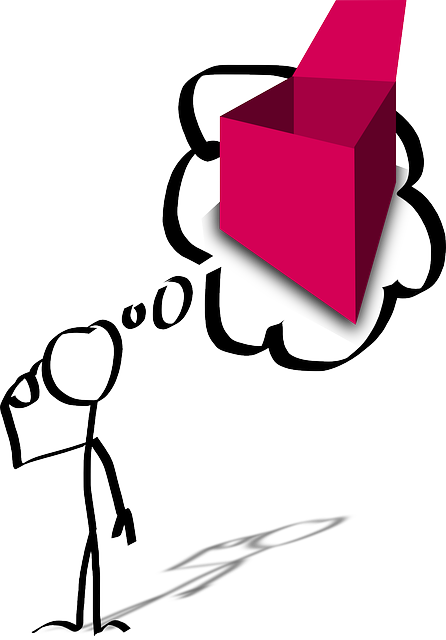Potential outcomes of brain injury including behaviour, cognitive, social, emotional.
PEACH is a simple tool supporters can use when gathering information about a person and their brain injury. It can help to understand the bigger story. PEACH is particularly useful when behaviour is challenging. First though – a little disclaimer – I know I am always disclaiming myself from something. I just like to be clear. A Little Disclaimer about PEACH and Gathering Information About Brain Injury: This tool I am sharing has been used mainly by people working with people with brain injury. This tool might also be useful as a self directed thingy if you are someone living with brain injury - I have not tested this out. You could give it a go. If you are family member or friend– same, same – it might be helpful. Feel free to try it out - or you could skip today's article but please come back next week. I do hope there is something here for everyone. If it…
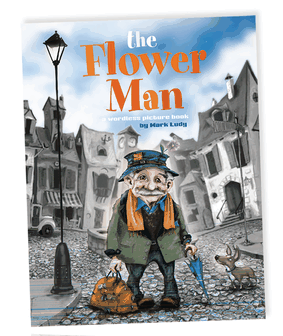
The Flower Man by Mark Ludy
Sometimes you discover treasures that help you to learn, to think, and to teach in the most unexpected places. The example that prompted this deep thought is ‘The Flower Man by Mark Ludy’ a childrens’ book, that is more than a childrens’ book. This came about when I was attending training on strengths based practice in the lovely country, Victorian, town of Bendigo (Australia). The organization St Lukes not only have a great online shop, and newsletter – SOON. At the time of my visit they also had a wonderful book shop in the middle of the town. Hours went by in that shop. Delicious hours. I came out with Strengths cards which were fantastic tools in training and working with families. A Strengths based practice manual. A book A Strengths Approach I have mentioned here before. And other things I have forgotten just now. My prize that day was ‘The Flower Man’ by Mark Ludy. This book is filled with lovely…
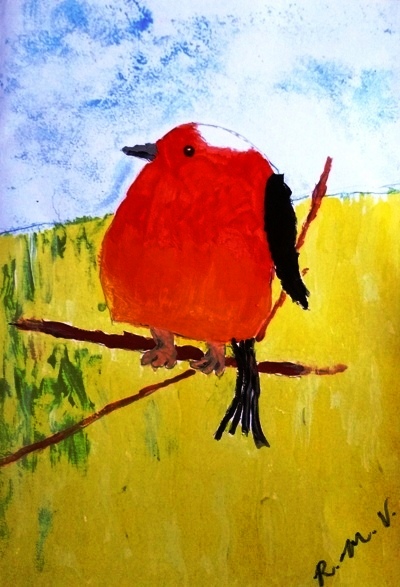
Image by Rebecca Viney
As we rapidly move towards the end of 2015, I was thinking about the articles about brain injury I most enjoyed writing this year. This included articles about the outcomes of brain injury, and some a little more obscure. This lead me to me doing a bit of searching around to see what others thought. I came up with a lists of favourites. My own fave. The article most viewed. The article most commented on. Finally an all round winner. My Fave Top 3 (plus 1) Learning to Say Maleesh – Why? It is always fun talking to author Rebecca Viney. I genuinely love her book - humorous, positive, strong. Rebecca now has a website. I learned how to do an audio, clumsily and roughly, and with a lot of time fiddling about. End of Life and Dying – series ONE TWO and THREE Why? This is a little cheat – I am including a series of 3 for…
I know. I know. This image can be seen as a cheap trick on my part to draw you in? I really just want to make a bold statement about sex and brain injury! To reinforce my view - that it's OK to talk it. We should talk about it. Many, many, subjects are written and discussed after brain injury – cognitive difficulties, role changes, returning to work - or not, partner becoming care giver, memory changes, behaviour, family life, loss of interest and motivation, eating, life plans, alcohol, impulsivity, egocentricity. On and on the list can go. Every aspect of human life. Well almost. The topic rarely discussed - and more often discussed as “inappropriate behaviour” is SEX and brain injury. I have had private, intimate, discussions with many couples over the years, sharing their concerns at loss of intimacy, changed desires, and loss of sex life after brain injury. Yet we rarely feel comfortable raising and discussing it in…

Celebration after brain injury Image by
Celebrations after brain injury can be tricky. This article is updated and reposted each year before the end of year. Timed for when Christmas, Hannukah, New Year and other celebrations abound. It acknowledges that managing celebrations after brain injury can be difficult. Filled with expectation and anticipation - it does not always deliver on the promise. It would be great to hear from you about your own experiences and strategies. Managing Celebrations after Brain Injury 2015 I do not want to be accused of being the Grinch who stole Christmas, so please let me start by wishing those of you celebrating Christmas a very special time. And for everyone I hope it is a wonderful new year. Why am I in danger of being called the Grinch? Well, in the middle of a major holiday celebration, I am about to suggest that birthdays, anniversaries, Christmas, and celebrations after brain injury do not always go so well together. Expectations can be high and…

Flickr Image by Theophilos Papadopoulos
Flickr Image by Theophilos Papadopoulos It seems the unusual outcomes of damage to the brain receive a good deal of attention in media coverage. Unusual outcomes of brain injury such as a person developing artistic talents or becoming a genius at mathematics, seem to grab headlines more than day to day life for people living with brain injury. Mostly these outcomes are rare. Can this media coverage be helpful? Before I go on -if you have not seen articles about people living with unusual outcomes - here are a couple of examples : This article “Stroke of Genius: 10 Abilities Borne of Brain Damage” describes 10 people who developed a significant new ability after brain injury And here “10 Fascinating People With Savant Syndrome” You might notice some of the people in each article are the same I found this quite common. And still more. This article with illustrations “6 People Who Gained Amazing Skills From Brain Injuries” I began collecting such…

Image kindly donated by Chris Scott
Finding out about sensory overload after brain injury has been tricky. Many months, (maybe over a year ago), I received a letter asking for information about sensory overload in adults after brain injury. While I did not have a lot of first-hand experience, I figured when researching all things 'brain' - information is usually plentiful. I was surprised that I could not find a whole lot of information on sensory overload for adults after brain injury. Consequently this article has been a long time in the making. Please feel free to help out with additional information and references. Sensory Overload - Sensory Flooding “Sensory Flooding” is another term I discovered. I like the clear picture that the term “flooding” gives. Brain injury can reduce or remove filters. This enables sensory information to ‘flood’ the brain. Overwhelming it. Creating surges just as flood waters do. What is Sensory Overload? One important function of the brain is to filter incoming information…
Changed behaviour, Behaviours of concern, Difficult behaviour, Bad behaviour, Challenging behaviour after brain injury – . Whatever term you use, it is one of the BIG topics in brain injury. It can mean challenges for the person living with brain injury, their family and friends, supporters, and community members. Behaviour changes can be mild to severe. From creating difficulties in social situations, to unlawful behaviour. From awkward moments to harmful, even dangerous behaviours. My challenge to myself for today is to take a BIG topic and turn it into a small article and still be useful. Just to let me off the hook a little: Over time I will cover more about behaviour and will link back to this article (remind me) so it becomes a hub of resources for Challenging Behaviour After Brain Injury. That is my vision, let’s see what happens. Why Do We Need to Know About Challenging Behaviour After Brain Injury? [unordered_list style="tick"] Challenging behaviour after…
In order to build brilliant strategies for brain injury it can be helpful to have a framework – sort of like the scaffolding around a building - to help guide and support you. Below are a set of principles that can help to form a framework that is effective, and focusses on the person. To help memory I am a fan of an acronym – you can see ACORN and BECAUSE in the article on Challenging Behaviour. You could use BECAUSE instead of PECKS here if it works better for you. Think PECKS – Principles for Brain Injury Strategies From body building to brilliant strategy building: P = Positive - Strengths Based E = Easy Changes First C = Consistency and Structure K = Keep it Simple S = Seek support Positive and Strength Based We do better when we begin with what we are good at and the focus in on our strengths. Like a body builder - look…
Concrete thinking is a descriptive term for this kind of thinking. Factual. What you see in front of you is what you understand. You take what is said to you, as it is said. Concrete thinking - being less able to generalise. Less able to think in the abstract. A person is likely to see and take things as said. Thinking about information and understanding information in a “concrete” way; taking things literally. What Would Concrete Thinking Look Like As with many cognitive (thinking) outcomes; concrete thinking can be difficult to understand, and to accept as a result of damage to the brain. You might see the following: [unordered_list style="green-dot"] Taking things literally. “Hop over here” would see you doing just that – hopping. Difficulty understanding abstract language such as metaphors, proverbs, humour and sarcasm. Proverbs are good examples of how concrete thinking can occur. Proverbs need you to be able to interpret the meaning, it requires abstract thinking.…
